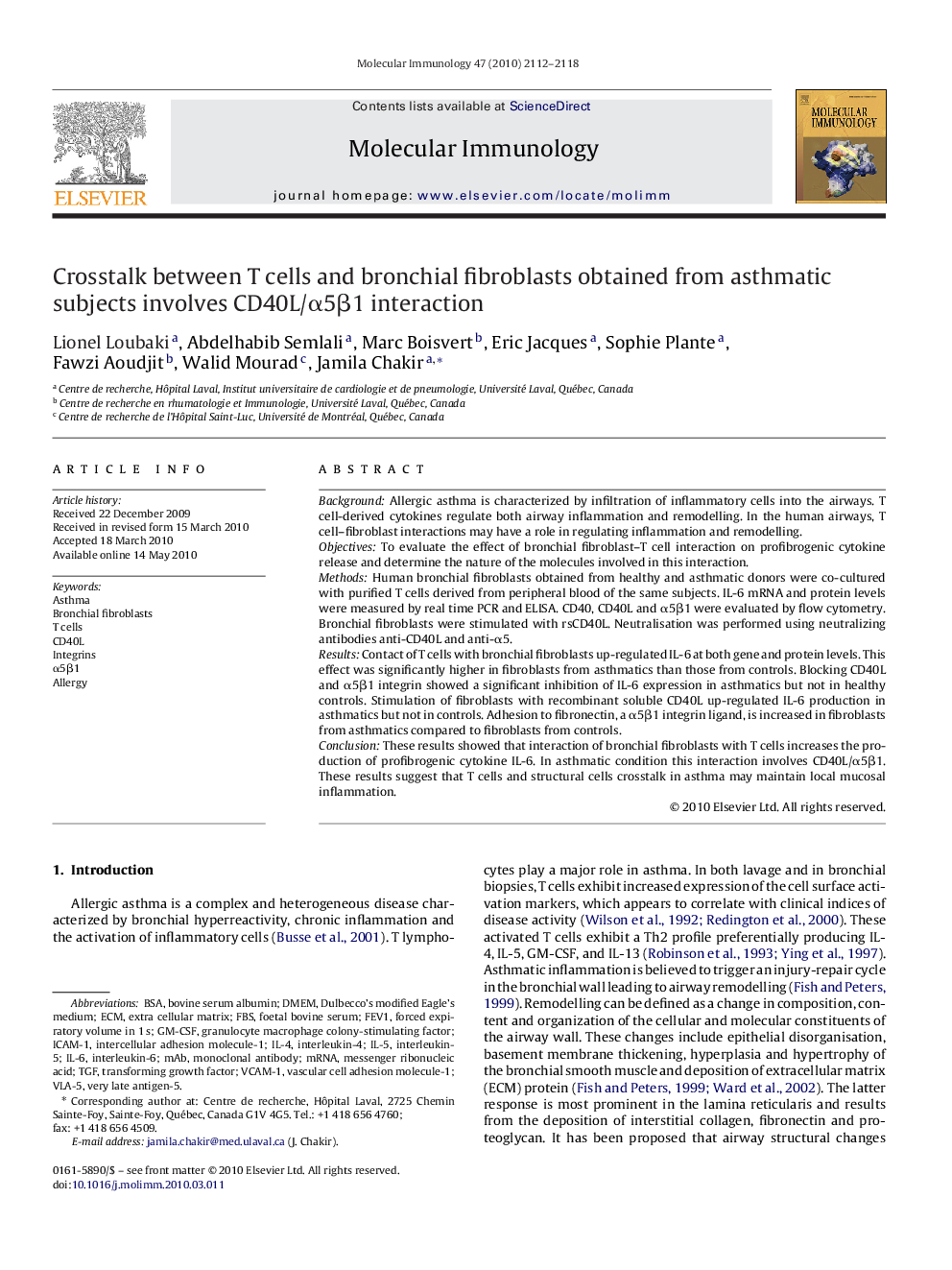| Article ID | Journal | Published Year | Pages | File Type |
|---|---|---|---|---|
| 2832169 | Molecular Immunology | 2010 | 7 Pages |
BackgroundAllergic asthma is characterized by infiltration of inflammatory cells into the airways. T cell-derived cytokines regulate both airway inflammation and remodelling. In the human airways, T cell–fibroblast interactions may have a role in regulating inflammation and remodelling.ObjectivesTo evaluate the effect of bronchial fibroblast–T cell interaction on profibrogenic cytokine release and determine the nature of the molecules involved in this interaction.MethodsHuman bronchial fibroblasts obtained from healthy and asthmatic donors were co-cultured with purified T cells derived from peripheral blood of the same subjects. IL-6 mRNA and protein levels were measured by real time PCR and ELISA. CD40, CD40L and α5β1 were evaluated by flow cytometry. Bronchial fibroblasts were stimulated with rsCD40L. Neutralisation was performed using neutralizing antibodies anti-CD40L and anti-α5.ResultsContact of T cells with bronchial fibroblasts up-regulated IL-6 at both gene and protein levels. This effect was significantly higher in fibroblasts from asthmatics than those from controls. Blocking CD40L and α5β1 integrin showed a significant inhibition of IL-6 expression in asthmatics but not in healthy controls. Stimulation of fibroblasts with recombinant soluble CD40L up-regulated IL-6 production in asthmatics but not in controls. Adhesion to fibronectin, a α5β1 integrin ligand, is increased in fibroblasts from asthmatics compared to fibroblasts from controls.ConclusionThese results showed that interaction of bronchial fibroblasts with T cells increases the production of profibrogenic cytokine IL-6. In asthmatic condition this interaction involves CD40L/α5β1. These results suggest that T cells and structural cells crosstalk in asthma may maintain local mucosal inflammation.
